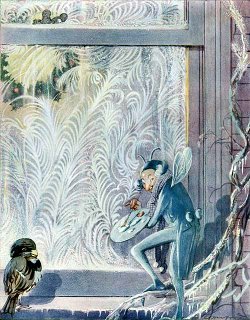
In a few badly chosen words, the New York Times explains the latest findings from the Electric Power Research Institute:
[S]ome in the utility industry are arguing that it will take decades of investments and innovation to get substantial reductions in their emissions of greenhouse gases.What a shame, eh? It makes me wish we’d known about the need to reduce emissions twenty years ago. Or even ten, for that matter. But of course, no one had any inkling of the climate problem back in those carefree days. In 1987, the American climatological community’s biggest worry was the untimely breakup of Twisted Sister.
At any rate, the EPRI study apparently calls for solar and wind to produce 6.7 percent of our national kilowatt-hours by 2030, which seems a bit modest to me. But perhaps they don't want to distract their readers from the tantalizing prospect of "clean coal."
If you're depressed by these statistics, it's probably because you've forgotten all about the power and the glory of biofuels. Assuming you work for ConAgra or ADM, you'll be thrilled to learn that Agriculture Secretary Mike Johanns has announced a plan to take land out of the Conservation Reserve Program and turn it over to corn production.
"There is a need for corn, there is just no doubt about it," Johanns told reporters after a Senate Agriculture Committee hearing Wednesday.You'll also be happy to know that climate change is easing the plight of Tibetan farmers:
[A]s he surveys the dazzling peaks surrounding him and counts his flock, it is hard to persuade Mr Tsawang that [global warming] is a problem. "Things are getting better and better," he said. So far this year I have only lost seven sheep."Mr. Tsawang may seem like a solipsistic, scientifically illiterate hayseed, but his thinking on global warming agrees perfectly with that of America's best and brightest (like Dr. Patrick Michaels, who assures us that "we're going to prosper, we're going to adapt, we're going to live with it.")
With these glad tidings in mind, let's consider China's promising approach to the problem of deforestation:
Villagers in southwestern China are wondering why more than $60,000 was spent to paint an entire barren mountainside green.Maybe so. But as food photographers will tell you, sometimes the real thing simply doesn’t look very appetizing, which is why breakfast cereals tend to be photographed floating in bowls of glue.
Workers who began spraying Laoshou mountain in August told villagers they were doing so on orders of the county government but were not told why, media reports said Wednesday.
The official Xinhua News Agency estimated the cost of the paint job at $60,600 and quoted villagers as saying that if spent on actual plants and trees, the money could have restored a far greater area of barren mountain.
I think the Chinese approach has lots of potential as an adaptive response to climate change. A snow-covered mountain painted under the supervision of Thomas Kinkade would be a terrific tourist attraction, and would probably look better in photos than anything we've got now. And honestly, how many of us would notice if the Arctic's bare rocks were covered in several coats of high-gloss white enamel?
It's not just a matter of aesthetics, either. A recent article in Science News actually mentioned the possibility of "covering large areas" of the earth with white paint "to reflect visible light from Earth into space." Admittedly, there are almost no scientists who'd entertain this idea, let alone approve of it. But that's all the more reason to take it seriously, lest we fall prey to "groupthink."
I really think it's worth a shot. Even if it doesn't work, it'll be an eye-pleasing stopgap until we get around to implementing Frosty Hardison's world baptism/nuclear refrigeration scheme.
2 comments:
Thomas Kinkaide, Painter of Suck
second on google, and he does suck.
richest artist in the world.
second on google, and he does suck.
Saying he sucks only scratches the surface. His work is so empty and cold and alien that it's downright sinister.
Thanks for reminding me that I'd spelled his name wrong. Fixed it in the post.
Post a Comment